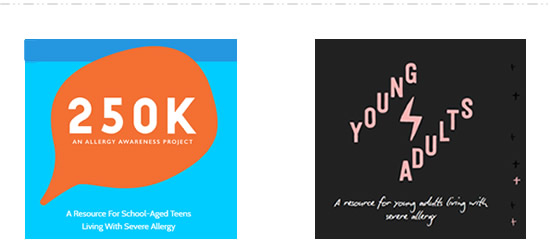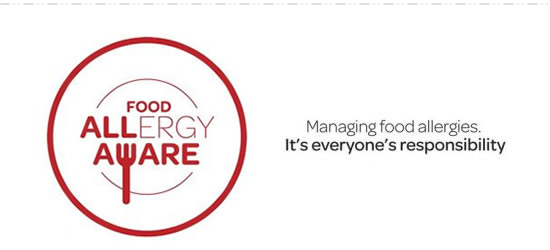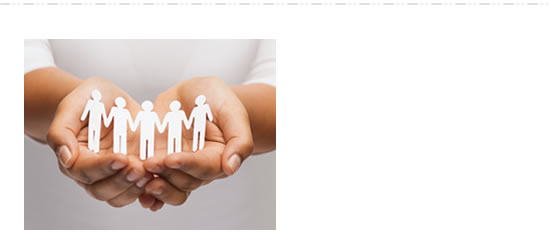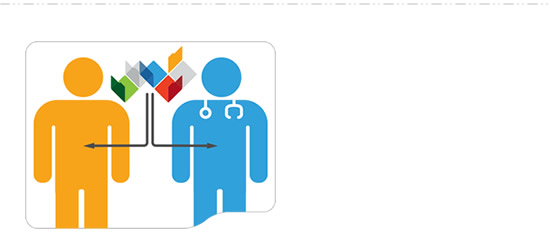National Allergy Strategy Achievements - 2019

Food allergy prevention project (Nip allergies in the Bub)
- National launch of Nip allergies in the Bub in June 2019 after a year of piloting the project in Western Australia.
- The Nip allergies in the Bub website (https://preventallergies.org.au) nominated as a finalist in the Australian Web Awards.
- Face to face education provided to GPs across Australia.
- Facebook campaign in July and August 2019 informed parents about the project.
- Food allergy prevention webinar conducted in partnership with Health Direct.
- Support provided to parents and health professionals by continuation of the 1300 number.
- Nip allergies in the Bub bookmarks distributed to hospitals for inclusion in baby books and distributed to health professionals across Australia.
- Initial results from SmartStartAllergy accepted for publication in the Medical Journal of Australia.

250K youth project
- A new 250K homepage was created, the 250K website for school aged teens was refreshed and a 250K website for young adults was developed. Visit 250k.org.au
- First 250K youth camp conducted at Camp Yarramundi in western Sydney in January 2019. There were 40 campers including staff and volunteers and we managed 21 different food allergies.
- Second 250K youth camp conducted at Merricks Lodge in the Mornington Peninsula, Victoria in November 2019. There were 34 campers including staff and volunteers and we managed 28 different food allergies.
- The 250K peer mentor program commenced and training was conducted in November 2019 in conjunction with the camp at Merricks Lodge. This peer mentor program has been developed (with permission) by adapting the Food Allergy Canada Allergy Pal program and resources.
- Connect 250K chat rooms commenced enabling communication with the 250K Youth Advisory Team, with the plan to grow the attendance to any teens or young adults living with severe allergies. Connect 250K will also be used for the 250K peer mentor program.
- A video competition about how to carry your EpiPen was undertaken. The winning videos are available from the 250K website.

Food allergy management in food service project
- Minimum standards for food allergy management training in food service were developed in consultation with key stakeholder organisations.
- All about Allergens: The next step for Cooks and Chefs online training was developed and launched in July 2019. Two versions of the course were developed – one for general food service and one for camps. Visit www.foodallergytraining.org.au
- Food Allergy Aware was developed as the branding for a communication strategy to raise awareness about managing food allergy in the community.
- A Food Allergy Aware resource hub was developed and released to help food service providers, health professionals, schools and childcare staff and consumers manage food allergies. Visit foodallergyaware.org.au
- A workshop focussing on the National Allergy Strategy food allergy management in hospitals resources was held at the Dietitians Association of Australia (DAA) conference on the Gold Coast.
- Work has commenced on the All about Allergens: The next step for hospitals.

Shared care model scoping project
- National online surveys of consumers and health professionals were undertaken as Phase 1 of the National Allergy Strategy Shared Care Model Scoping project.
- A face to face meeting of key stakeholders was undertaken as Phase 2 of the Project – 49 participants from 30 organisations and 14 consumers (regional, rural and metro) participated in the meeting in Sydney.
- Targeted consultation with key stakeholders via online (zoom) meetings and teleconferences were undertaken as Phase 3 of the Project.
- A report including recommendations has been submitted to the Australian Government Department of Health.
- Shared Care Model visit to Albany in the south west of Western Australia provided education about allergy management to health professionals and the community, delivered by a team of allergy health professionals. The visit was coordinated by the National Allergy Strategy in partnership with the Perth Children’s Hospital and Allergy & Anaphylaxis Australia.

Engagement with the Australian Digital Health Agency
- My Health Record project:
- A working group has been established to identify which allergy information should be documented into My Health Record.
- Communications regarding allergy information in My Health Record have been sent to ASCIA members (via ASCIA) and individuals with allergy (via Allergy & Anaphylaxis Australia).
- National Allergy Strategy representatives participated in several face to face stakeholder consultation meetings conducted by the Australian Digital Health Agency across Australia.

Other National Allergy Strategy projects and activity
- The National Allergy Strategy conducted a face to face meeting in Melbourne, to discuss an anaphylaxis register/notification scheme for Australia, which involved state health department representatives and other key stakeholders. A follow up meeting is planned for early 2020.
- The National Allergy Strategy made a submission to the Parliamentary Inquiry into Allergies and Anaphylaxis and was invited to speak at a public hearing in Sydney in November 2019.
- A series of presentations were presented at HealthEd GP education days across Australia focussing on the food allergy, including the psychosocial impact.
- The National Allergy Strategy participated in the Allergy Show held in Melbourne in July 2019.

Stay informed about the National Allergy Strategy
Follow us on Facebook, Instagram and LinkedIn to stay informed or visit the National Allergy Strategy website: www.nationalallergystrategy.org.au

Thank you
The National Allergy Strategy has achieved a tremendous amount this year. We could not achieve this level of success without the infrastructure and support of the two partner lead organisations – ASCIA and Allergy & Anaphylaxis Australia.
The leadership of our National Allergy Strategy Co-chairs – Ms Maria Said and Dr Preeti Joshi (and A/Prof Richard Loh who stepped down in September 2019) – has been vital in guiding the National Allergy Strategy and our important advocacy role. They provide this leadership in a voluntary capacity which we greatly appreciate.
Thank you also to the National Allergy Strategy Steering Committee members and working group members who also volunteer their time and expertise.
Finally, thank you to the National Allergy Strategy staff who continue to be highly productive and committed to their work, which delivers results above and beyond expectations.
On behalf of the National Allergy Strategy, we wish you a safe and happy Christmas and New Year. We look forward to another successful year in 2020.


